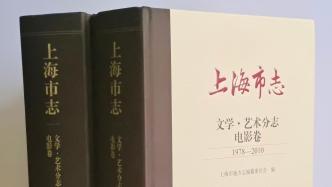
It took ten years to complete the manuscript with more than 1.62 million words, including 896 precious historical pictures, and a "Shanghai Chronicle · Literature · Art Branch · Film Volume (1978-2010)" (hereinafter referred to as ""Movie Volume") It truly, accurately, rigorously, comprehensively and scientifically reflects the art and reality of Shanghai film, and comprehensively and truly records the development history and exploration process of Shanghai film world during the 33 years of reform and opening up from 1978 to 2010. Ren Zhonglun, chairman of the Shanghai Film Association and editor-in-chief of "Movie Volume", mentioned in the preface of the book: This period is an important historical stage for Shanghai film to connect the past and the future; An accomplished cinematic climax.
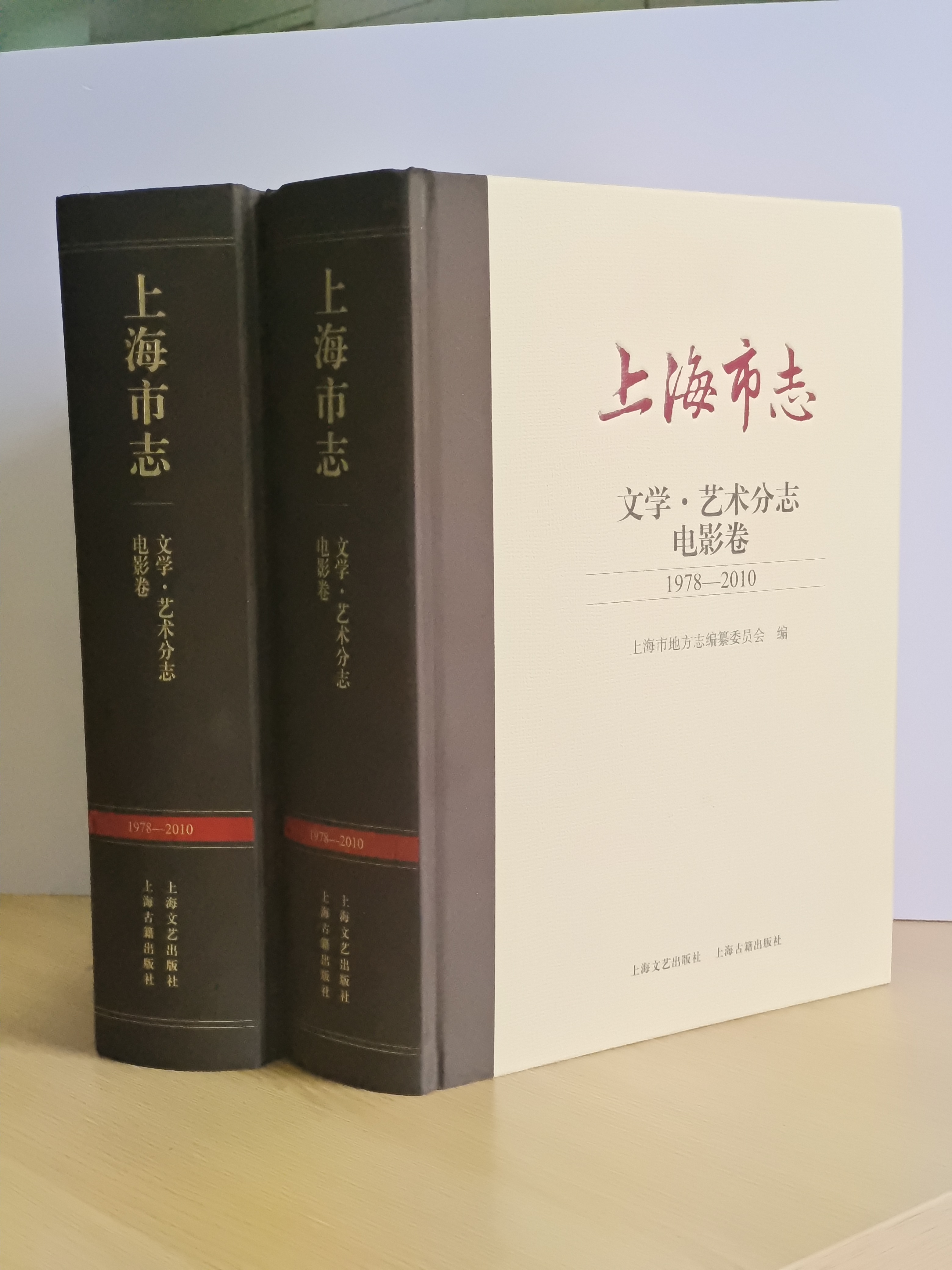
"Shanghai Chronicle · Literature · Art Branch · Film Volume (1978-2010)" book video
On November 15, the Shanghai film industry studied and implemented the spirit of the 20th National Congress of the Communist Party of China and the publication and distribution seminar of "Shanghai Chronicle·Literature·Art Branch·Film Volume (1978-2010)" was held in the Shanghai Art Hall. More than 70 people attended the event, including relevant leaders of Shanghai Film Group, Shanghai Federation of Literary and Art Circles, Shanghai Local Chronicles Office, reviewers, reviewers and editors of "Movie Volume", representatives of old, middle-aged and young artists in the Shanghai film industry, representatives of film and television units, and university teachers and students.
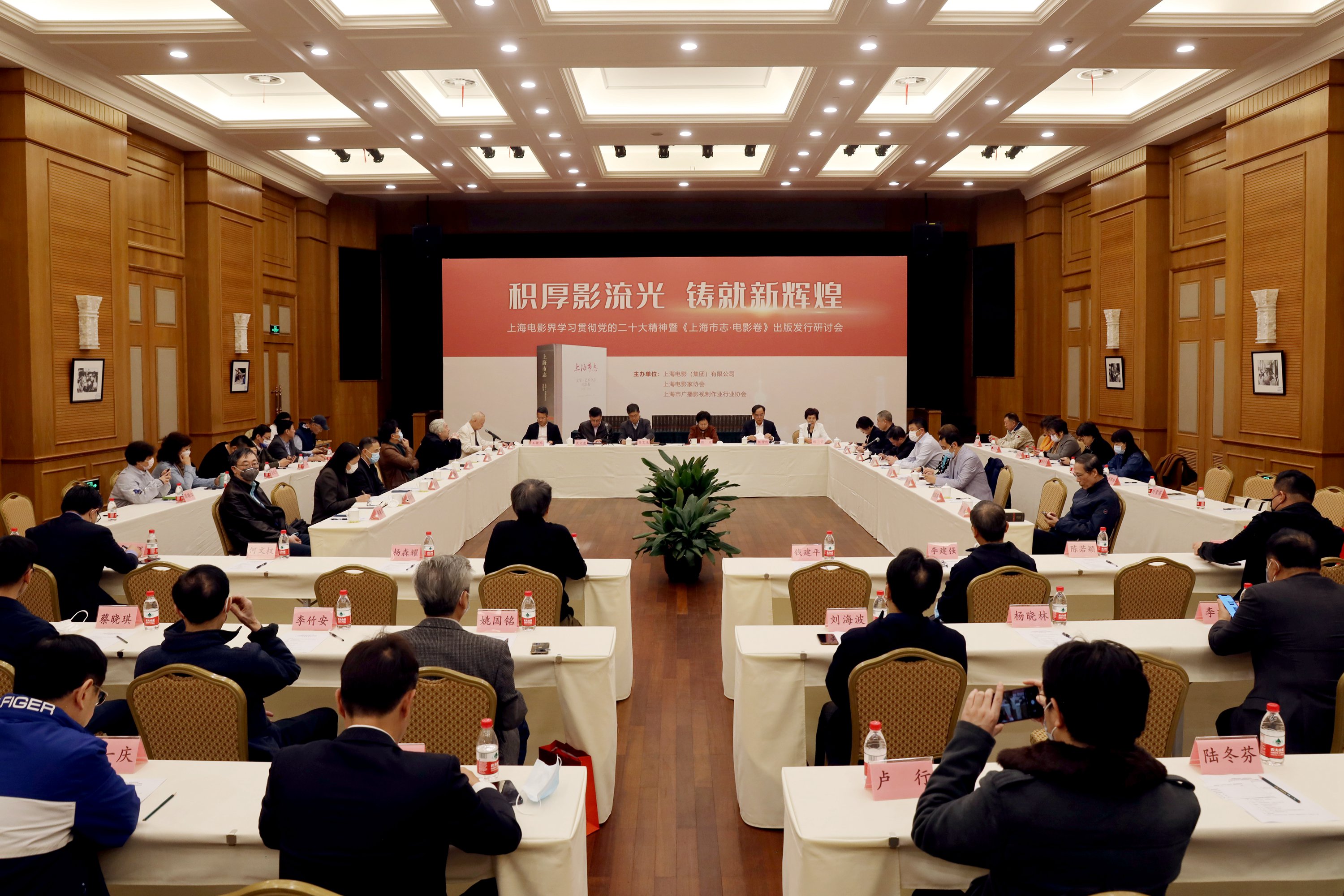
Seminar site
Striving for perfection and completing a million-word masterpiece
The second round of compilation of local chronicles in Shanghai was launched in 2012. The "Drama Volume", "Movie Volume", "Music and Dance Volume", "Quyi Acrobatics Volume" and "Art Calligraphy Photography Volume" in the Literary and Art Branch have gone through hundreds of years. Eight years of collection, argumentation, writing, and editing by experts, scholars, and editors have finally been completed and published in July 2022. These chronicles comprehensively and objectively describe in detail the situation of the nine major literary and art categories in Shanghai during the 33 years from 1978 to 2010, their venues, demonstrations, exhibitions, research and exchange activities.
Among them, the upper limit of the entire volume of "Movie Volume" begins in 1978, and the lower limit ends in 2010. At this stage, China's reform and opening up kicked off, and it was an important historical period for the recovery, leapfrogging and innovation of Shanghai's literature and art.
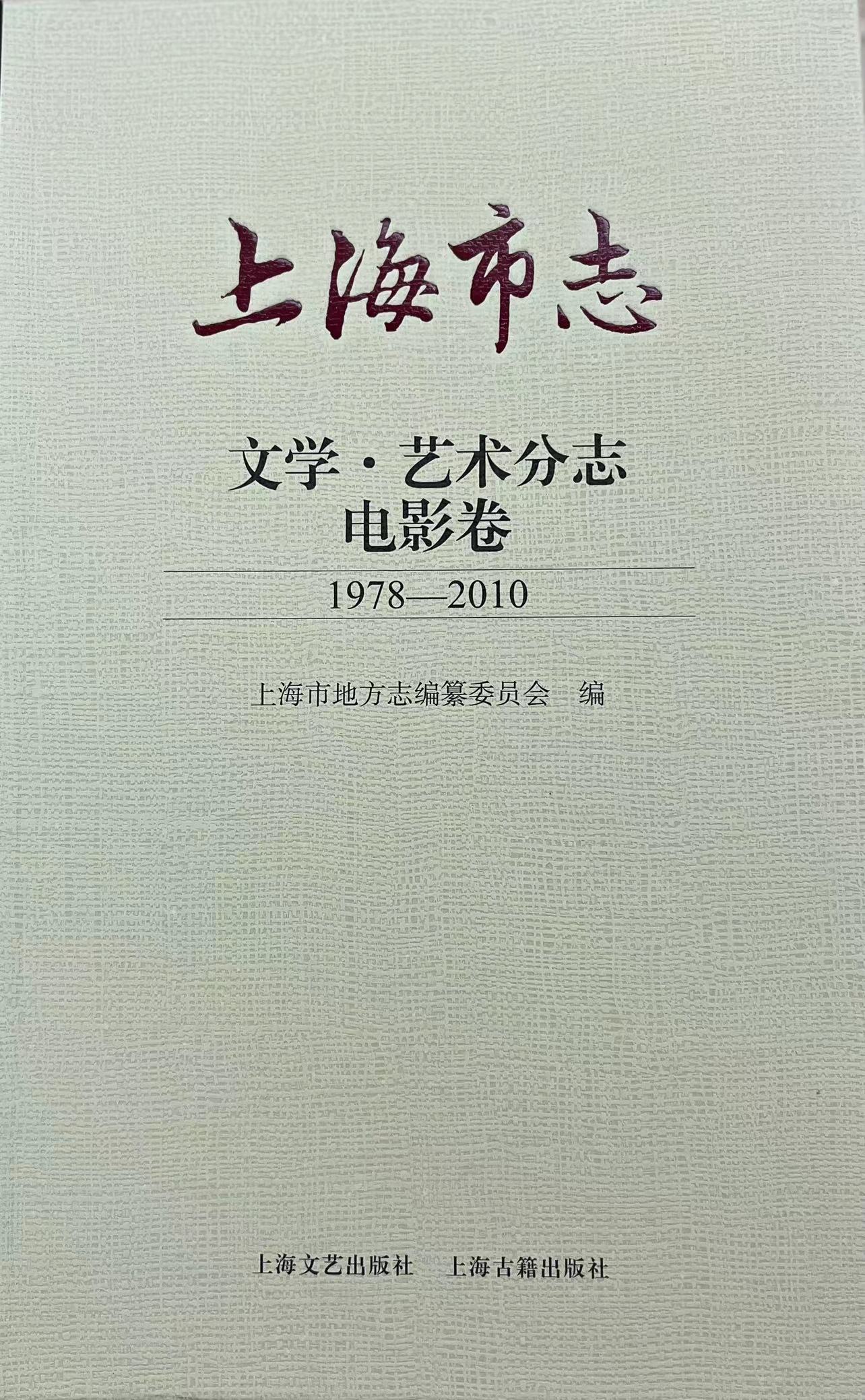
"Shanghai Chronicle · Literature · Art Branch · Film Volume (1978-2010)" book video
During the ten-year compilation process of "Movie Volume", according to the deployment of the Shanghai Local Chronicles Office, it has gone through work stages such as "organizational mobilization, institutional training", "data collection, card making", "summarization and long compilation, and trial writing of the first draft". During this period, experts and scholars in the Shanghai film industry conducted a comprehensive review of the entire volume of "Film Volume" from various aspects such as structural integration, contextual organization, feature capture, key grasp, and text expression, and proposed revision suggestions and opinions many times. According to the opinions of experts and scholars, the compilation unit of "Movie Volume" carefully revised historical facts, adjusted the content, streamlined the text, and standardized the writing. Acceptance passed.
"This is a matter of great merit, but also very labor-intensive." Shen Wenzhong, deputy director of the "Film Volume" editorial committee, commented on the compilation of local chronicles. A movie chronicle with millions of dollars records the glorious journey of Shanghai movies after the reform and opening up.
From 1978 to the entire 1980s, Shanghai films went from thawing to liberation, starting with the "ideological liberation" movement, and ushered in the third creative climax, such as "Dawn" directed by Shen Fu and "Nanchang Uprising" directed by Tang Xiaodan Wait. Among them, director Xie Jin is particularly eye-catching. In the seven years since 1979, Xie Jin has successively shot six works. The "Reflection Trilogy" composed of "Legend of Tianyun Mountain", "Wrangler" and "Furong Town" won the first "Golden Rooster Award", the sixth "Hundred Flowers Award" and the seventh "Golden Rooster Award" for best Feature Film Award. At the same time, the Shanghai Animation Film Studio, where the "Chinese Animation School" is located, has also begun to make efforts to continuously create my country's second animated feature film "Nezha Nao Hai", the third animated feature film "Golden Monkey Falling" Demon", "Three Monks", which is well-known at home and abroad, and the puppet film "Avanti" and other cartoons with unique Chinese national characteristics and widely loved by the public.
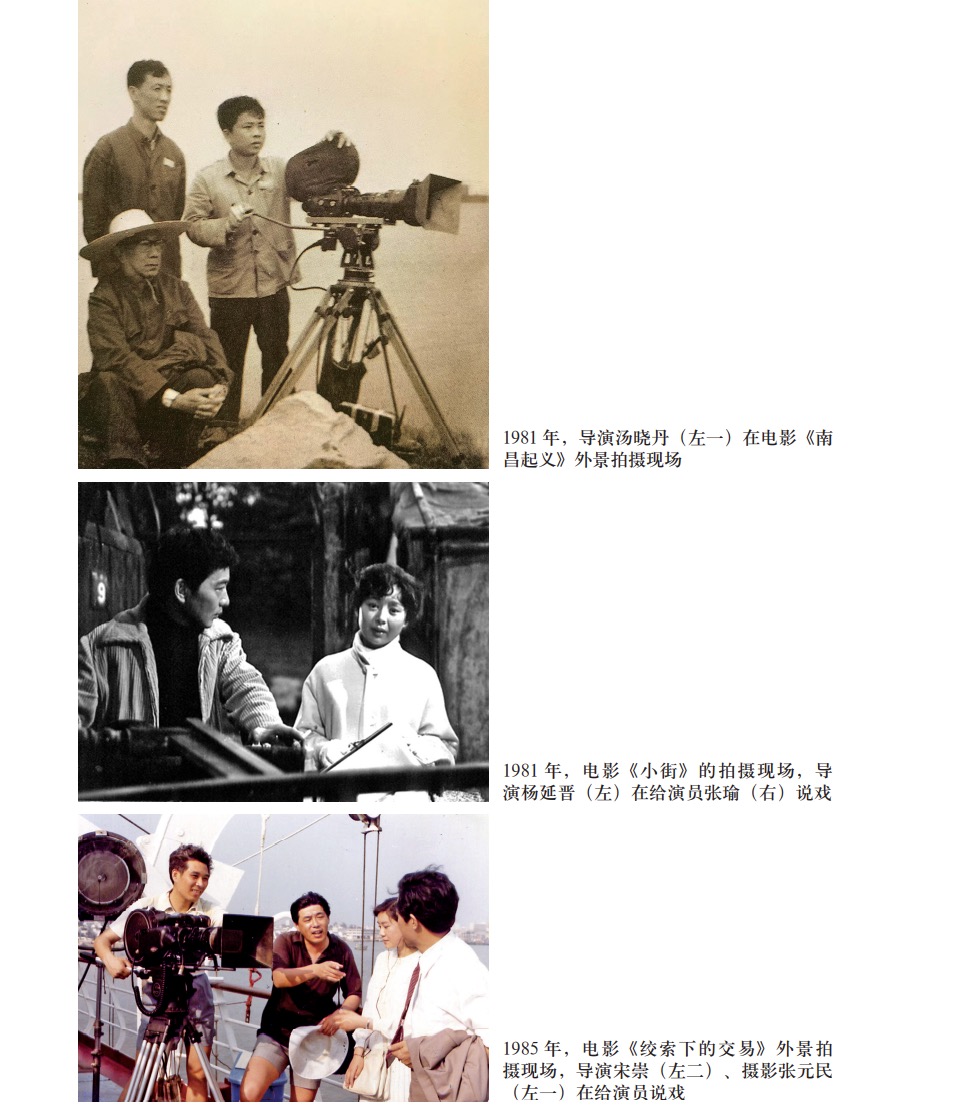
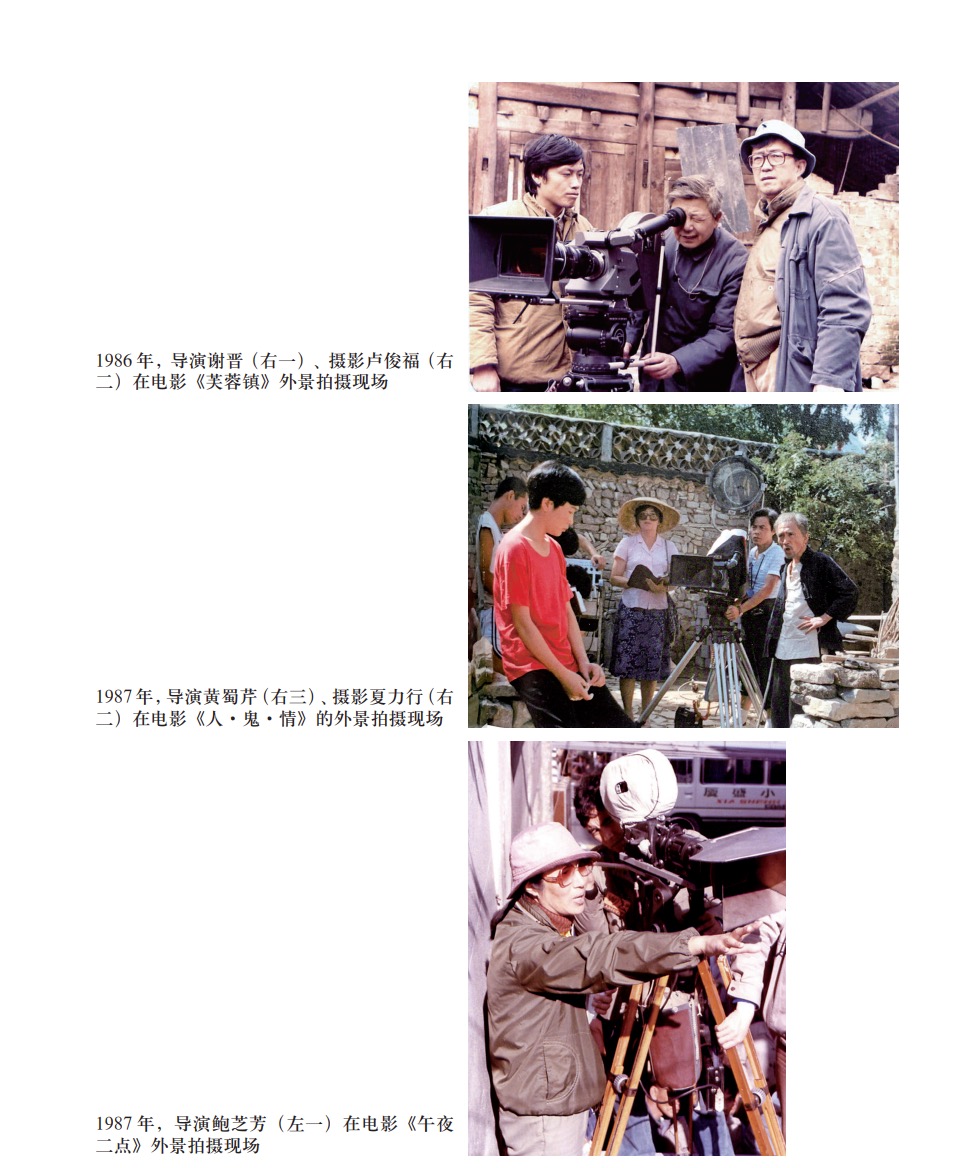
Inside page of "Shanghai Chronicle · Literature · Art Branch · Film Volume (1978—2010)"
In the 1990s, the planned economy began to transition to a market economy. The rise of television and the backwardness of the film system made Shanghai film enter a period of decline. The first Shanghai International Film Festival was born in 1993. It is the first international category A film festival recognized by the International Film Producers Association in China, and has become "the torch ignited by Shanghai films in their difficult journey."
In 2001, China joined the World Trade Organization, and the Chinese film market began to open to the wider world and join hands with more filmmakers. The Shanghai film industry has successively cooperated with director Wong Kar-wai on such films as "2046" and "The Great Master", as well as Guan Jinpeng's "Song of Everlasting Regret" and Chen Kexin's "If Love", etc. These cooperations have brought genre experience and commercial awareness to Shanghai films; Cooperating with Ang Lee on "Lust, Caution" and cooperating with Wu Yusen on "Red Cliff", etc., have opened up the international film space for Shanghai films; cooperating with mainland directors has produced many excellent films, such as "The Good Man in Three Gorges" and " God ordained".

Wang Tianyun, former vice president of Shanghai Film Group and deputy editor-in-chief of "Film Volume"
"When I compiled this book, I didn't expect it to be so thick." Wang Tianyun, former vice president of Shanghai Film Group and deputy editor-in-chief of "Film Volume", introduced, "Shanghai is an open city, and international film festivals and exhibitions were also established at that time. With the co-production film market and international channels, we have made many contributions to world cinema and created many firsts. We have spent a lot of brains to make a detailed and appropriate presentation, in order to be able to assume the role of an academic research reference book , every word is carefully considered.”
During the compilation of "Movie Volume", three different editorial units, from the former Municipal Bureau of Culture and Broadcasting, to the Municipal Film Bureau, and then to the Municipal Federation of Literary and Art Circles, the specific editing unit was also adjusted from the Shanghai Film Group to the Film Association. Training", "data collection, card making", "summarizing long compilation, first draft trial writing" and other working stages.
"When we were on Yongfu Road, we had an office with two brands and one brand. One was the Shanghai Film Critics Society, and the other was the editorial department of Film Journal. They were all those comrades—the editor of Film Journal, It’s also a staff member of the Critics Society.” Zhu Feng, president of the Shanghai Film Critics Society, revealed, “Our “Film Volume” has been tossed and turned many times, with one draft revised and another draft reworked. Such a thick “Film Volume” has never been There may be tens of millions of words in the manuscript." Zhu Feng witnessed the whole process of its birth, and knew that it was not easy to change the manuscript and proofread it word by word. Many editors work without remuneration. During the years of editing, they constantly feel the spirit of serving the people in movies.
Chen Dong, the head of the evaluation and approval team of "Film Volume", said with emotion: "'You don't know the difficulty until you pass it'. This old saying can be best reflected in our compilation of records. For more than 30 years, there is a vast amount of information, who can enter the record, what Events can be included in the journal, and it is not easy to miss anything, especially in our "Movie Volume", there are many "living people", how to write their biographies, how to write their introductions, how many words, how to evaluate, these are all word by word Consider it, check it out."
Jiang Fusheng, deputy director of the Shanghai Local Chronicles Office, commented, "Shanghai filmmakers' self-pressurized work spirit of excellence makes "Movie Volume" a masterpiece with rich content and informative information."

Group photo of guests
"Where the film world is, the history of film is there; where the film is, the spirit of the film is there"
Chang Zhu said in the preface to "Huayang Guozhi": "There are five virtues in husband's book deeds: to achieve morality and justice, rules and precepts, to understand the past and present, to show meritorious deeds, and then to adore talents." "education" function. Compiling the chronicle is not only to record the development of film, but also to pay respect to the people who made history and inherit the aspirations and spirit of the ancestors.
"We not only write about reform and opening up, we also write about who the movies of that era should serve." Wang Tianyun, former vice president of Shanghai Film Group and deputy editor-in-chief of "Movie Volume", pointed out. From the founding of the People's Republic of China to today, Shanghai films have always adhered to the creative orientation of "literature and art centered on the people". Take the famous filmmaker Xie Jin as an example. His "Legend of Tianyun Mountain" took the lead in focusing on the sharp influence of "Leftist" thoughts on people's fate. It describes the bumpy fate of people in the "turbulent" era, and at the same time shows the protagonist's pursuit of a better life. "The reason why Director Xie has won the most audiences in China and the most awards in China is that the core is to insist on creating for the people." said Ren Zhonglun, chairman of the Shanghai Film Association, director of the editorial committee of "Film Volume", and editor-in-chief of "Film Volume". .

Ren Zhonglun, chairman of Shanghai Film Association, director of the editorial committee of "Film Volume", and editor-in-chief of "Film Volume"
With an accurate grasp of the laws of art and a love for film art, Shanghai filmmakers have completed a large number of works that not only follow the mainstream political line of a specific era, but also have superb artistic expression. Ren Zhonglun said: "In recent years, the party has proposed to create a credible, lovable, and respectable image of China, tell Chinese stories well, and spread Chinese voices. In fact, this is the tradition of Shanghai filmmakers-telling China well in an artistically creative way. story."
Being inclusive of all rivers is the city spirit of Shanghai, and it is also the unique spirit that Shanghai movies have always had. In 1993, under the advocacy and hard work of Wu Yigong and other veteran artists, the Shanghai International Film Festival was successfully established. "In that era, the Shanghai International Film Festival was founded, the International Film Exhibition was established, there was a market for co-production films, and there was an international channel for co-production films, and it also made a lot of contributions to world films. Where the films in the region are different."
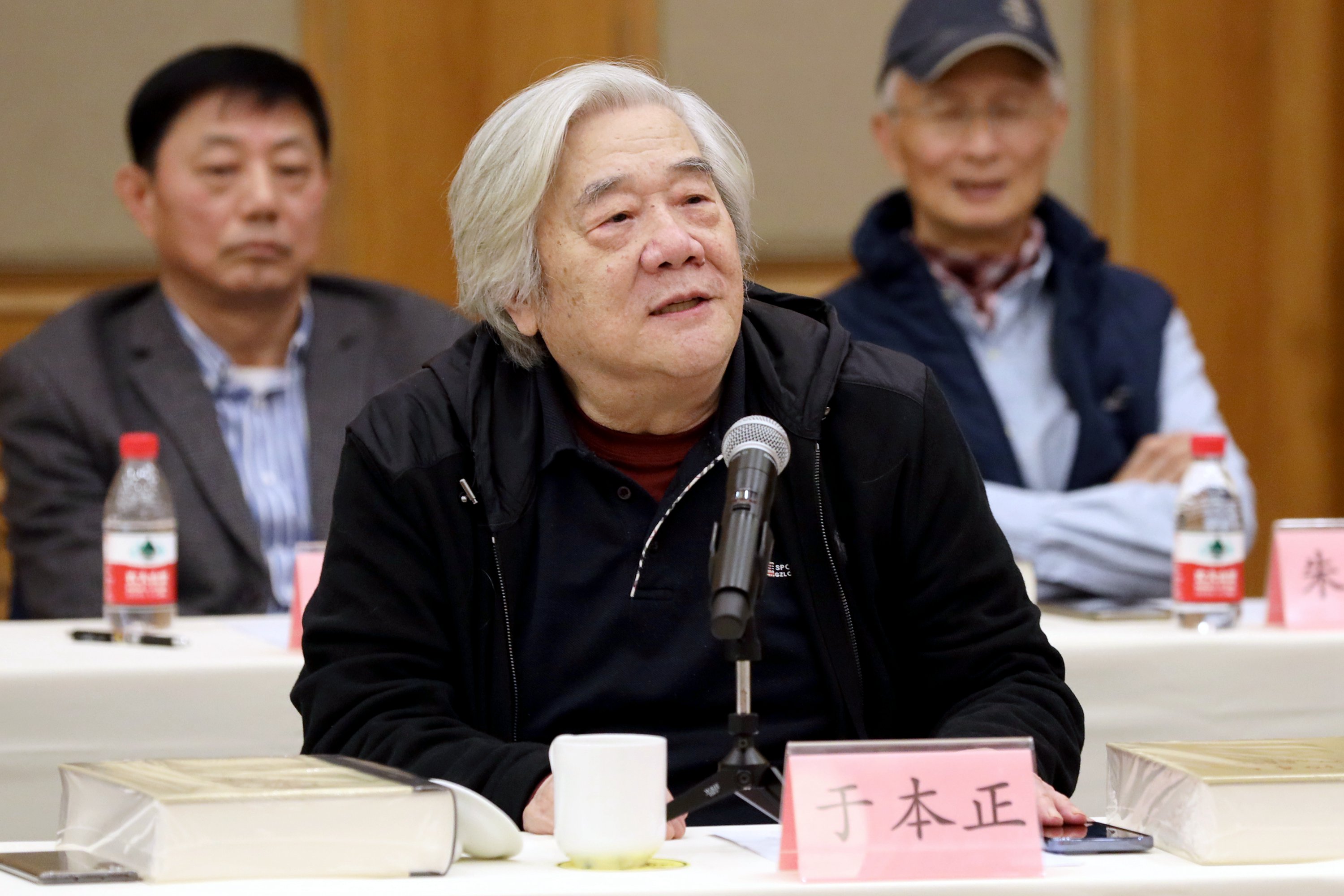
Yu Benzheng, former director and director of Shanghai Film Studio
Experts and scholars present at the meeting talked about the past glory of Shanghai film, which made veteran director Yu Benzheng sigh, "Only with film can one have aspirations." As the former director of the Shanghai Film Studio, Yu Benzheng said: "The compilation of "Movie Volume" is certainly very difficult, but more importantly, it is the joint efforts of so many old artists and predecessors that have made this book a reality." .”
The publication of the "Movie Volume" also triggered the Shanghai film industry's thinking on how to create new glories for Shanghai films. "The report of the 20th National Congress of the Communist Party of China has pointed out the direction for the development of Chinese films in the new era. As witnesses and practitioners of the new era and new journey, we must also absorb nutrients from history, inherit the spirit of our predecessors, and continue to forge ahead. "Wang Jianer, Secretary of the Party Committee and Chairman of Shanghai Film Group, said that at present, the film industry is facing the pressure of transformation. Revisiting the spirit of the older generation of filmmakers who love their careers, work hard, and have the courage to pioneer, and the continuous creation and breakthrough of Shanghai's film development history, It also inspires Shanghai filmmakers in the new era to explore as pioneers and demonstrators of industrial transformation. "Shanghai films have always had the courage to be pioneers, and they have always embodied the spirit of inclusiveness. We will strive to create new achievements and new works, so that Shanghai films will always take root in the people and live up to the times."
Recording the past and compiling it into history is itself a job of creating history, but "we hope that there will be new brilliance to make our next "Film Volume" more exciting." Ren Zhonglun concluded.


